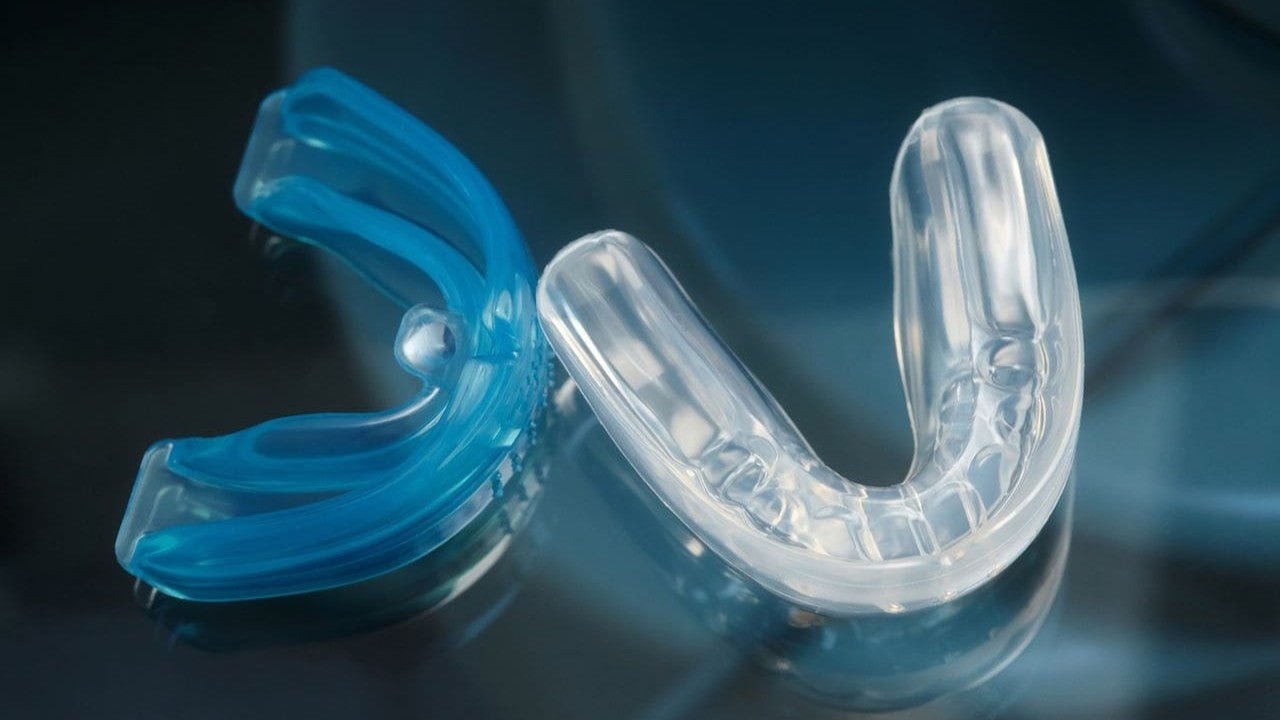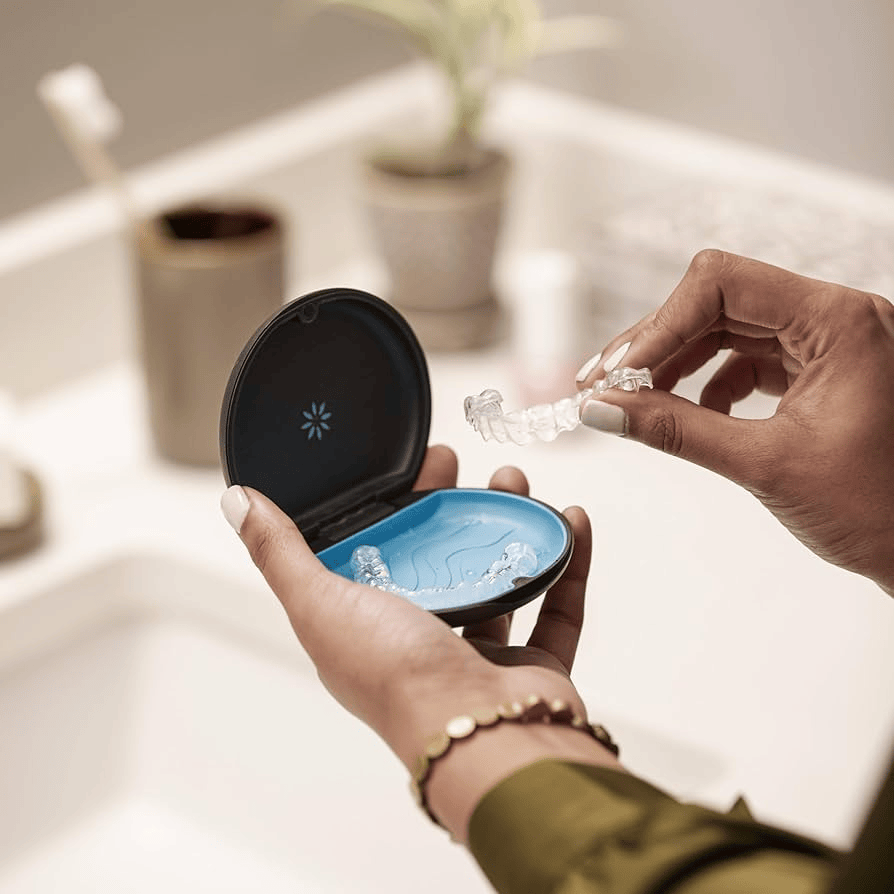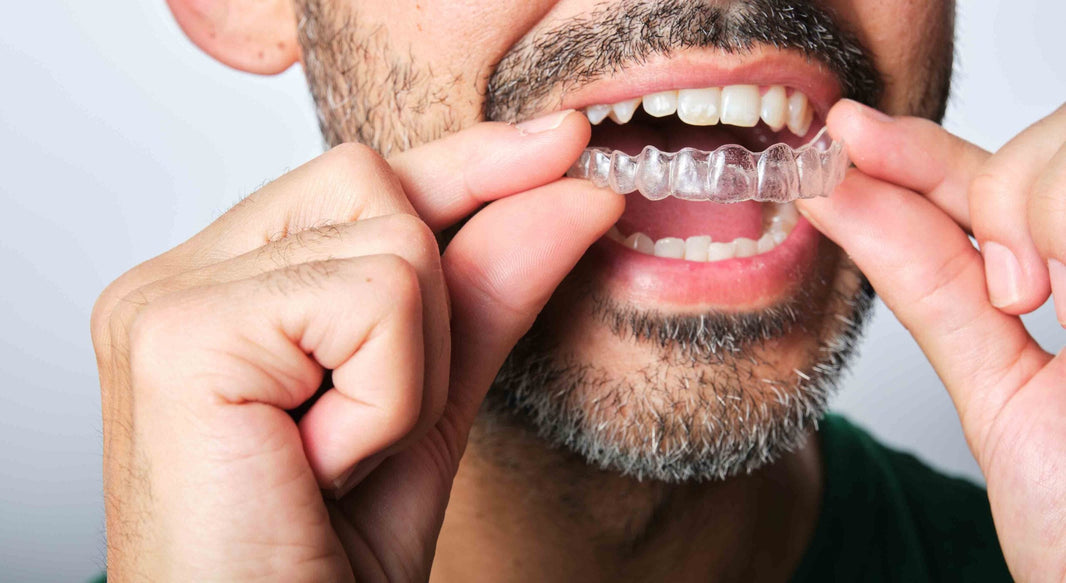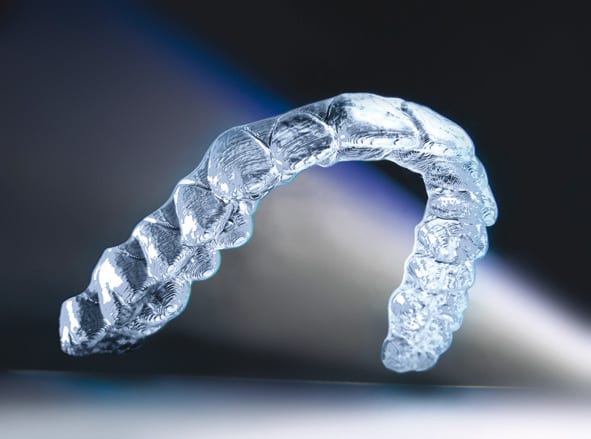A custom occlusal guard—often called a night guard for teeth grinding—is your first line of defense against bruxism, TMJ pain, and cracked enamel. Yet even the best bruxism mouth guard can become a breeding ground for bacteria if you skip proper maintenance. This comprehensive guide offers a deep dive into daily hygiene protocols, weekly sanitizing methods, and long-term maintenance strategies. Whether you wear a soft dental night guard or a full-arch occlusal guard hard appliance, proper care ensures that your appliance remains effective, durable, and safe for long-term use.
Table of contents
Daily Care for a Bruxism Night Guard
Rinse & Brush Your Night Guard Each Morning
The moment you remove your night guard for teeth grinding in the morning, give it a gentle rinse under lukewarm water to wash away overnight saliva, bacteria, and debris. Follow this with a careful brushing using a soft-bristled toothbrush and either non-abrasive toothpaste or alcohol-free soap. Be sure to clean all surfaces, including the inner grooves and biting edges, as bacteria can easily accumulate in those areas. Consistent daily cleaning not only prevents plaque buildup and bad odor but also reduces your risk of gum irritation or infection.
Key daily-clean steps for any dental night guard:
Rinse immediately with lukewarm water—never hot, which warps plastic.
Use mild toothpaste or dish soap; avoid whitening or gritty pastes.
Brush the entire surface, including occlusal grooves and edges.
Air-dry completely on a clean towel before placing in its ventilated case.
Weekly Deep-Clean Methods for Occlusal Guards
DIY Vinegar & Peroxide Soak for Mouth Guard Cleaning
For a reliable and cost-effective deep-cleaning solution, combine equal parts white vinegar and 3% hydrogen peroxide in a glass container. Soak your occlusal guard for 20 to 30 minutes. The vinegar effectively dissolves calcium deposits and tartar, while the hydrogen peroxide penetrates the surface to eliminate odor-causing bacteria and fungal spores. This dual-action approach is ideal for maintaining clarity, especially for those wearing occlusal guard hard appliance full arch guards that may be more prone to discoloration.

Using Commercial Night Guard Cleaner Tablets
Prefer a more convenient, pre-measured solution? Effervescent tablets formulated specifically for night guard cleaner use are widely available and easy to use. These cleaners typically contain antimicrobial agents that safely penetrate the appliance material without degrading it. Follow the packet instructions—most recommend a 15-minute soak. Once the cleaning cycle is complete, rinse thoroughly and allow the guard to air-dry completely. These are particularly effective for occlusal guards used daily by patients with severe bruxism or TMJ disorders.

Why Consistent Mouth Guard Cleaning Matters
Neglecting oral appliance hygiene can result in serious health consequences. Research has shown that mouthguards harbor dangerous microbes such as staphylococcus, streptococcus, and candida if not cleaned regularly. Over time, this microbial buildup can contribute to respiratory issues, oral infections, and bad breath. A disciplined cleaning routine extends your guard’s lifespan, reduces replacement costs, and protects your overall oral ecosystem.
Preventing Odor & Yellowing in Bruxism Guards
Persistent yellowing or foul smells usually indicate a buildup of biofilm, which can lead to material degradation if not addressed. To combat this, soak your dental night guard weekly in a mild vinegar solution (1:3 vinegar to water). This breaks down bacterial buildup and neutralizes odors. Routine soaking is especially important for users of a mouth guard for TMJ, where long-term appliance integrity is essential to pain relief.
Extending Your Occlusal Guard Lifespan
A well-maintained bruxism night guard typically lasts between three and five years. Keeping it clean helps preserve its shape and effectiveness. Guards that are regularly sanitized resist microtears, retain their form, and continue to cushion your bite effectively—even with heavy clenching. Proper care reduces wear and tear, ultimately saving you the cost of early replacement and potential restorative dental work.

Safe Storage & Handling for Dental Night Guards
Protecting Your Mouth Guard from Heat & Pets
Thermoplastic night guards are highly susceptible to heat and pressure. Storing your guard near a window, radiator, or in a steamy bathroom can warp its custom fit. Always keep it in a ventilated hard case in a cool, dry area. Additionally, store it out of reach from pets. Dogs, in particular, are notorious for chewing through mouthguards left unattended on nightstands or countertops.
Hygiene Steps Before & After Wearing a Night Guard
Maintaining oral hygiene before and after wearing your guard is critical. Brushing and flossing before insertion ensures that food particles don’t get trapped between your teeth and the appliance. After removal, rinse your mouth and the guard again to prevent plaque formation. This simple routine significantly reduces the risk of decay and ensures that your mouth guard remains hygienic and comfortable to wear.
Signs It’s Time to Replace Your Bruxism Night Guard
Spotting Visible Wear on Your Mouth Guard
Your night guard for bruxism is exposed to intense pressure night after night. Over time, this pressure causes wear in the form of cracks, dents, or thinning areas. Once the structural integrity is compromised, the guard can no longer absorb bite forces effectively. If you notice visible damage, consult your dentist immediately for a replacement.
Persistent Odor or Loose Fit in Occlusal Guard
If your guard retains a persistent odor even after thorough cleaning, or if it feels looser than before, it's likely no longer providing a secure fit. Ill-fitting guards can irritate your gums, interfere with sleep, and increase your risk of dental trauma. Your dentist can re-evaluate your bite and fabricate a replacement that restores proper protection.
When to Replace an Occlusal Guard (Cost-Saving Tips)
Recognizing Wear in Your Bruxism Mouth Guard
Even high-quality dental night guards degrade with time and use. Daily exposure to saliva enzymes, nighttime clenching, and fluctuating mouth temperatures contribute to material breakdown. Ignoring these signs not only puts your teeth at risk of injury but may also worsen TMJ symptoms. Proactive replacement preserves your smile and oral comfort.
Key indicators that it’s time to order a new night guard for teeth grinding:
- Visible cracks, tears, or holes—especially in high-pressure molar zones
- Dramatic thinning of the plastic, making the guard feel flimsy or uneven
- Persistent foul odor or yellow staining that deep-cleaning won’t remove
- Looser fit that wiggles or pops out during sleep, reducing protection
- Increased morning jaw pain or revived TMJ symptoms despite nightly wear
Professional Night Guard Cleaning & In-Office Care
Bring your nightguard dental appliance to your biannual dental checkups. Dental professionals use ultrasonic cleaning baths and special solutions to deep clean your guard. They also inspect the appliance for wear, evaluate fit, and offer suggestions on care or replacement. These maintenance visits are key to maximizing the value and function of your occlusal guard.
Cleaning Mistakes That Shorten Night Guard Lifespan
Some well-meaning habits can actually damage your custom mouthguard. For example, using boiling water or abrasive toothpaste may seem effective but can ruin the guard’s fit and integrity. Stick with recommended products and avoid shortcuts that could compromise your dental investment.
Avoid these common errors when you clean a mouthguard:
- Using hot or boiling water—heat distorts the thermoplastic shape
- Scrubbing with gritty or whitening toothpaste that scratches surfaces
- Storing a damp guard in an airtight bag (promotes mold growth)
- Skipping a weekly disinfectant soak; bacteria double every 20 minutes
- Chewing or “popping” the guard during the day, which forms cracks
Travel & Storage Tips for Your Mouth Guard
Traveling with your dental guard? Always pack a spare ventilated case and keep your mouthguard away from heat or impact. For added convenience, carry single-use wipes or travel-size non-alcoholic mouthwash to keep your guard clean between wears. Whether you’re flying overseas or spending the night at a friend’s, maintaining hygiene on the go is crucial for continuous protection.
Keeping Your Mouth Guard Clean While Traveling
Hotel sinks and gym locker rooms are hotspots for bacteria. Rinse your bruxism mouth guard with bottled or filtered water and use appliance-safe wipes designed for oral devices. These quick-clean methods reduce exposure to external contaminants and maintain comfort on the go.
On-the-go cleaning essentials:
Travel-size, alcohol-free mouthwash for quick disinfecting rinses
Pre-measured cleansing tablets—drop one in a cup of lukewarm water
Spare ventilated case in case the first is lost or contaminated
Soft microfiber cloth to dry the guard fully before recasing
Heat-Proof & Pet-Proof Mouth Guard Storage at Home
Your night mouth guard should never be stored in the bathroom where steam can cause warping. Likewise, storing it within reach of pets—especially dogs—often results in chew damage. Always use a protective, ventilated case and place it in a drawer or cabinet that stays cool and dry.
Best-practice storage guidelines:
Keep in a shaded, room-temperature spot away from hot showers
Place the ventilated case out of pets’ reach—dogs love to chew plastic
Label the case with your name to avoid accidental sharing or loss
Replace the storage case yearly; scratches inside can harbor bacteria
How to clean a night guard for grinding?
After you take the guard out each morning, rinse it under lukewarm water right away to wash off saliva and loose debris. Next, use your regular soft-bristle toothbrush to give it a gentle scrub on every surface; no toothpaste is necessary. Let the appliance air-dry on a clean towel before placing it back in its ventilated case.
Is it safe to soak a night guard in vinegar?
Yes—but set a timer. A 20- to 40-minute bath in white vinegar is plenty to dissolve mineral deposits. Leaving the guard submerged for longer than an hour can weaken or warp the plastic. Skip any solution that contains alcohol (including products like Listerine), which can make the material brittle.
What happens if you don't clean your night guard?
An unwashed guard quickly turns into a bacterial hotbed. Plaque and germs that collect on the appliance can transfer back to your teeth and gums, raising the risk of decay, bad breath, and oral infections. Regular cleaning keeps both the guard and your mouth healthier—and extends the life of the device.
What is the best product to clean a night guard with?
Skip abrasive toothpaste. Instead, choose a gentle soak: drop the guard into a cup containing either a denture-cleaning tablet, a 1:1 mix of antiseptic mouthwash and water, or equal parts white vinegar and hydrogen peroxide. Let it sit for roughly half an hour, rinse thoroughly, and allow it to air-dry completely.
Conclusion
Your occlusal guard is more than just a dental appliance—it’s a critical tool in preserving your oral health and managing conditions like bruxism and TMJ. With consistent care, including daily rinsing, weekly deep cleaning, safe storage, and timely replacements, your mouthguard can deliver maximum protection and comfort for years. Following these best practices not only extends your guard’s lifespan but also helps avoid expensive dental procedures and improves your overall quality of life.






